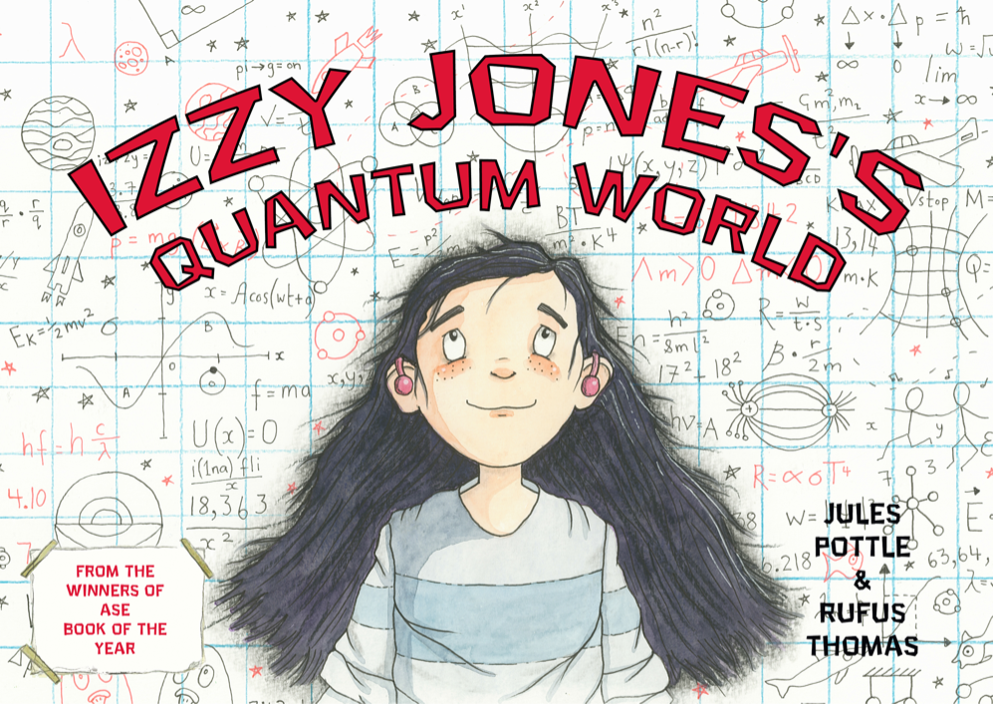At first glance, using the words ‘school’ and ‘quantum science’ in the same sentence seems rather paradoxical. However, scientists at The University of Manchester believe integrating the fundamentals of larger scientific concepts into the primary and secondary school curriculum is actually completely logical.
Izzy Jones’s Quantum World is the bi-product of award-winning primary science teachers Jules Pottle and Rufus Thomas, fusing creativity and accessibility with their shared passion of science and engineering.
Co-curated by the Science and Engineering Education Research and Innovation Hub (SEERIH) and the Nanoscale Advanced Materials Engineering (NAME) project, Pottle and Thomas have produced a unique and innovative resource for children to engage with scientific principles in ways applicable to their everyday lives.

The story follows protagonist Izzy as she navigates personal anxieties, learning what she can, and can’t, control in her life. The book communicates the concept of variables in science, with an introductory insight into the world of quantum computers. Crucially, it is compatible with and considerate of the school curriculum.
The resource draws upon the pioneering work of quantum scientists in the NAME project, a collaborative body of research between The University of Manchester, The University of Leeds and Imperial College London, funded by the Engineering and Physical Sciences Research Council (EPSRC).
Pottle and Thomas hope to see Izzy carry the story of Quantum as far and wide as possible: “Together, we have co-created a way to engage young people with concepts that underpin Quantum research. Using her story, we’ve made a resource that is fit-for-purpose, age-related, and most importantly, meaningful within a mainstream curriculum context.
This is a prime opportunity to really make a difference by sharing great science together.”
Izzy Jones’s Quantum World will be released on World Quantum Day, Sunday 14 April, and launched alongside a set of curated school resources for pupils aged 5-14 within The Great Science Share for Schools campaign.
Personalising Science with Smart Pickings
This is not the first publication from the Faculty of Science and Engineering at The University of Manchester which aims to engage primary school children with STEM subjects. Professor and Vice Dean of SEERIH, Lynne Bianchi’s second edition of Smart Pickings is also launching imminently, having originally seen success upon its release in 2016.
This new book promotes conversations between primary school children, their classmates, teachers, parents, siblings, and friends about the world and wonders of science. The new edition has been commissioned to mark the University’s Bicentenary celebrations, with 60 scientists and 200 questions from young children.

Professor Danielle George says, “Broadening children’s awareness of the diverse scientists and engineers is crucial to inspiring the next generation. Smart Pickings, once again, opens up so many options so that we can share in rich conversations about the things we care about.”
As part of the University’s Bicentenary celebrations, every primary school in Greater Manchester will receive a copy of Smart Pickings and be encouraged to ask, explore and investigate scientific questions together.
The SEERIH is a nationally recognised centre of science and engineering education. It develops and engages teachers in innovative, research-informed, continuous professional development programmes to ensure high-quality learning outcomes for young people.
Learn more about the Science and Engineering Education Research and Innovation Hub (SEERIH) in The Faculty of Science and Engineering at The University of Manchester.
